In Dnipro, editors of local print media met with representatives of Ukrposhta to discuss postal tariffs for subscription, quality of service, and delivery of periodicals. This is very important now as a subscription campaign for 2024 is underway in Ukraine. Both newspapermen and mail carriers are interested in its effectiveness.
Subscription under new tariffs
From November 1, Ukrposhta started accepting subscriptions for 2024. You can order the publication online, as well as at post offices and through mail carriers. But the subscription is accompanied by an increase in tariffs. In particular, the service for accepting subscriptions to periodical print media (per address, regardless of the number of publications) will be UAH 15.00. Until now, the cost of operations related to the delivery of newspapers and magazines was calculated depending on several components: the weight and volume of the publication (columns) and the number of issues for the minimum subscription period. From now on, it is enough to choose the sphere of media distribution: nationwide or local. Delivery of one copy will cost UAH 5.00 for national media and UAH 4.00 for local media.
“The new overpayment will be formed at the level of the general directorate, i.e., in Kyiv. Subscription catalogs have already been created. But for the first time in two years, Ukrposhta decided to raise tariffs. There are a number of reasons for this. In particular, the increase in tariffs will ensure at least the minimum profitability of the provision of services and the avoidance of further losses. It will also help to improve the delivery service. The company will be able to invest more in development. And in the end, it will make the daily life of publishers easier. On the website of Ukrposhta, it will be possible to accept a public offer online without unnecessary bureaucracy,” said Kateryna Panova, the head of the periodicals department of the Dnipro region of the Ukrposhta joint-stock company.
The circulation of periodicals has fallen several times in the Dnipropetrovsk Region, as well as throughout Ukraine.
Why did this happen?
The vision of mail carriers. According to them, the reasons are as follows: constant shelling of populated areas – Nikopol, Marhanets, Synelnykove, and others; migration of people within the region, the country, or abroad; loss of subscription from the legal sector; decrease in the number of pensioners served by Ukrposhta; readers are gradually switching to electronic editions; loss of trust of subscribers due to non-publication or closure of a significant part of publications.
The vision of the media. Journalists consider one of the reasons for the significant decrease in the number of subscribers to be the consequences of the reform carried out by Ukrposhta: the reduction of mail carriers, the closing of stationary post offices, and their conversion to the format of mobile work. This is confirmed by the results of the press delivery hotline, which was initiated by the NUJU. Within two months, more than 1,000 complaints were received about the improper work of Ukrposhta.
As Nataliya Nazarova, the coordinator of the Dnipro Journalists’ Solidarity Center of the NUJU, noted, people complained that after the postmen were fired, newspapers were brought either with a delay, when they lost their relevance and “became just wastepaper,” or they were not distributed at all, and the readers had to go for the press to the post office or the Ukrposhta car themselves.
Board chairperson of the Dnipropetrovsk Regional Organization of the NUJU/Director of Visti Prydniproviya LLC, Oleksii Kovalchuk, emphasized the social responsibility of Ukrposhta. During the war, websites, television, and radio without printed publications cannot be full-fledged fighters of the information front. Ukrainians especially felt this during blackouts, when they did not have access to electricity and the Internet for a long time.
“Ukrposhta is a monopoly in the delivery of periodicals. But at the same time, this enterprise fulfills strategic tasks and should not forget about social responsibility to citizens. No company, no society should operate at a loss. The situation is not easy for media workers who have become hostages of the number of circumstances. Therefore, we need to find a balance. The NUJU studies all problematic issues and appeals to the state with them. But I am convinced: now we need a compensator both for the post office and for newspapermen,” noted Oleksii Kovalchuk.
About retail, mail carriers’ work, and common problems
The editors also raised the issue of retail trade in periodicals. After all, there is a category of citizens who prefer buying newspapers to a subscription. According to the head of the Dnipro regional postal services department of the Ukrposhta, Kseniya Kardinal, if a reader wants to receive a newspaper in retail, they should contact the head of the department with an application. Nowadays, it is very difficult to calculate the retail price as the population moves, and different requests are received from readers every day.
There are 833 mail carriers working in the Dnipropetrovsk Region, and only eight vacancies. It is clear that there are small villages in which it is not economically feasible to maintain a post office. There are densely populated communities, but they are sometimes served by only 3-4 mail carriers. According to the editors, who know the situation firsthand, mail carriers walk around the villages, and they do not always have at least bicycles at their disposal. For example, the population of the Sofiyivka Community is 6,500 people, and two mail carriers simply physically do not have time to serve everyone.
Journalists also had questions about mobile offices. They have to come to the village once or twice a week. In reality, the situation is different, and the mobile department sometimes arrives much less frequently. So, the newspaper completely loses its relevance.
The post clerks also explained the principle of operation of mobile offices. They stay mainly in the center of the settlement. This is their parking spot. The postman delivers to homes. And the branch manager serves people on the spot.
Serhii Yermolenko, the director of the Dnipro regional network development department of Ukrposhta, listened to the remarks of the editors participating in the meeting. He took note of all problematic settlements where, according to newspapermen, mail carriers work dishonestly and promised to eliminate the shortcomings in the near future.
“People should have postal service, no matter where they live: in a city or a small village. We need to discuss common problems more often. The Union of Journalists at the state level raises all these pressing issues,” Oleksii Kovalchuk noted. “Request to Ukrposhta to also be socially responsible. It depends on you not only to deliver periodicals but also to provide jobs in the villages.”
For further information on subscription and delivery of publications, you can:
- contact the contact center at 0 800 300 545;
- send a letter to e-mail Ukrposhta@Ukrposhta.ua;
- fill out the feedback form at the link.
Call the Dnipro JSC at 050 919 8479 (Nataliya Nazarova, the Dnipro JSC coordinator). The Center’s address is 8 Starokozatska Street.
ABOUT JSC
The Journalists’ Solidarity Centers is an initiative of the NUJU implemented with the support of the International and European Federations of Journalists and UNESCO. The initiative is designated to help media representatives working in Ukraine during the war. The Centers operate in Kyiv, Lviv, Ivano-Frankivsk, Chernivtsi, Zaporizhzhia, and Dnipro and provide journalists with organizational, technical, legal, psychological, and other types of assistance.
ABOUT UNESCO
UNESCO is the United Nations Educational, Scientific, and Cultural Organization. It contributes to peace and security by promoting international cooperation in education, sciences, culture, communication, and information. UNESCO promotes knowledge sharing and the free flow of ideas to accelerate mutual understanding. It is the coordinator of the UN Action Plan on the Safety of Journalists and the Issue of Impunity, which aims to create a free and safe environment for journalists and media workers, thus strengthening peace, democracy, and sustainable development worldwide. UNESCO is working closely with its partner organizations in Ukraine to provide support to journalists on the ground.
The designations employed and the presentation of material throughout this digest do not imply the expression of any opinion whatsoever on the part of UNESCO concerning the legal status of any country, territory, city, or area or its authorities or concerning the delimitation of its frontiers or boundaries.
The authors are responsible for the choice and the presentation of the facts contained in this digest and for the opinions expressed therein, which are not necessarily those of UNESCO and do not commit to the organization.
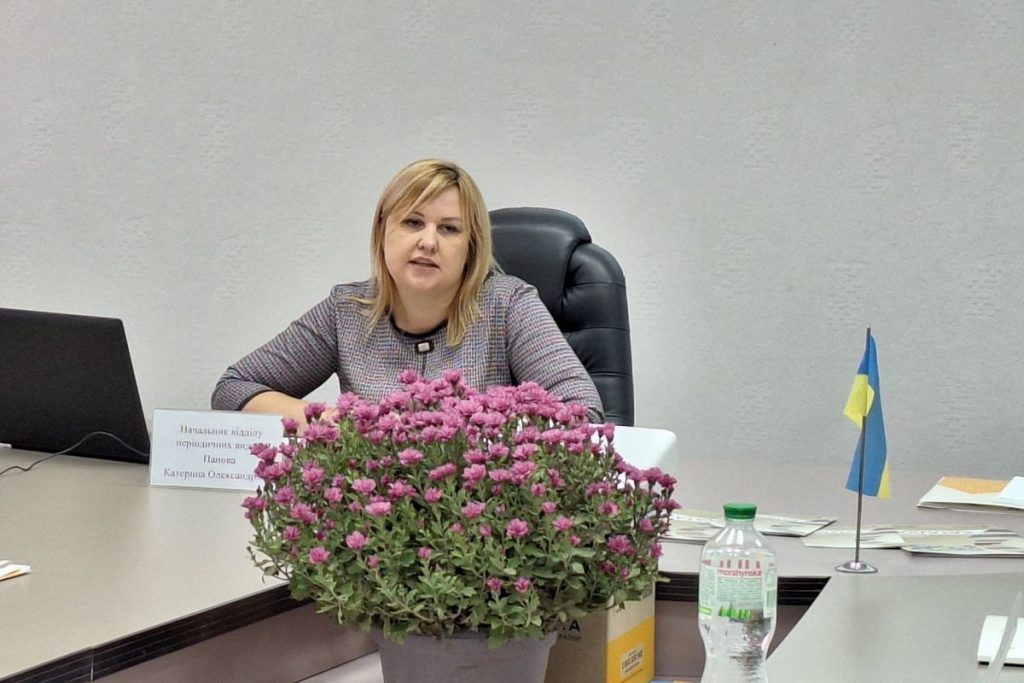
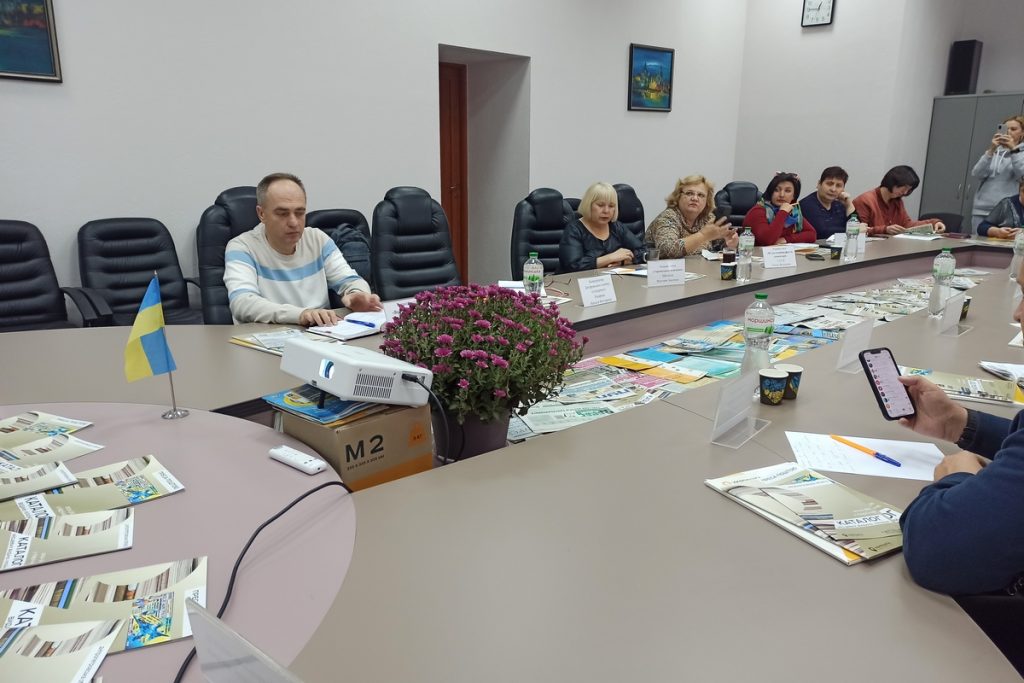
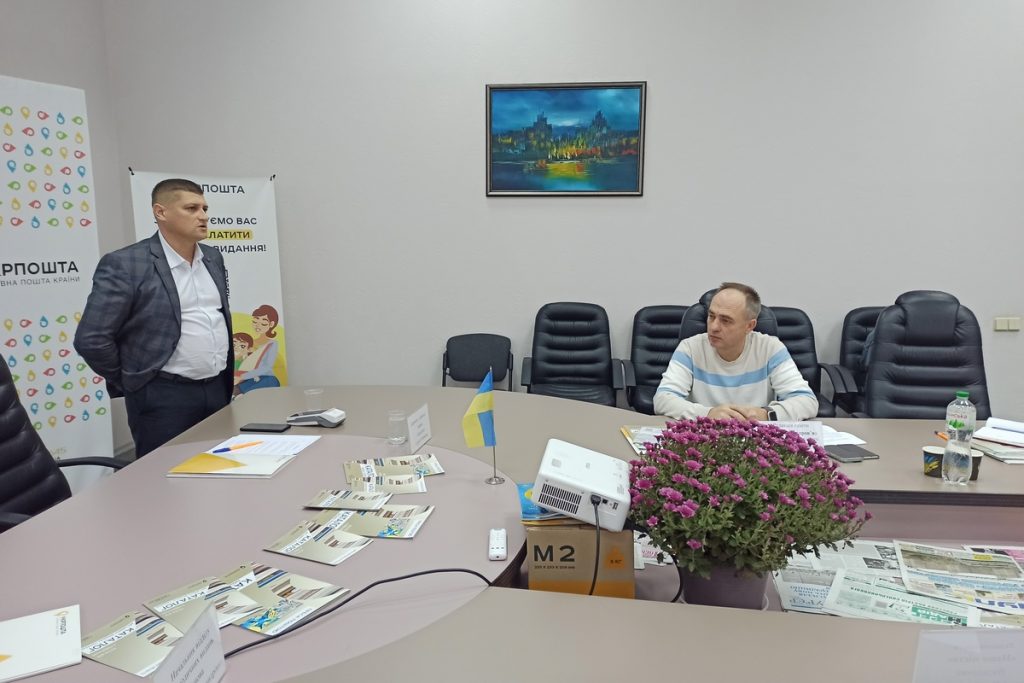
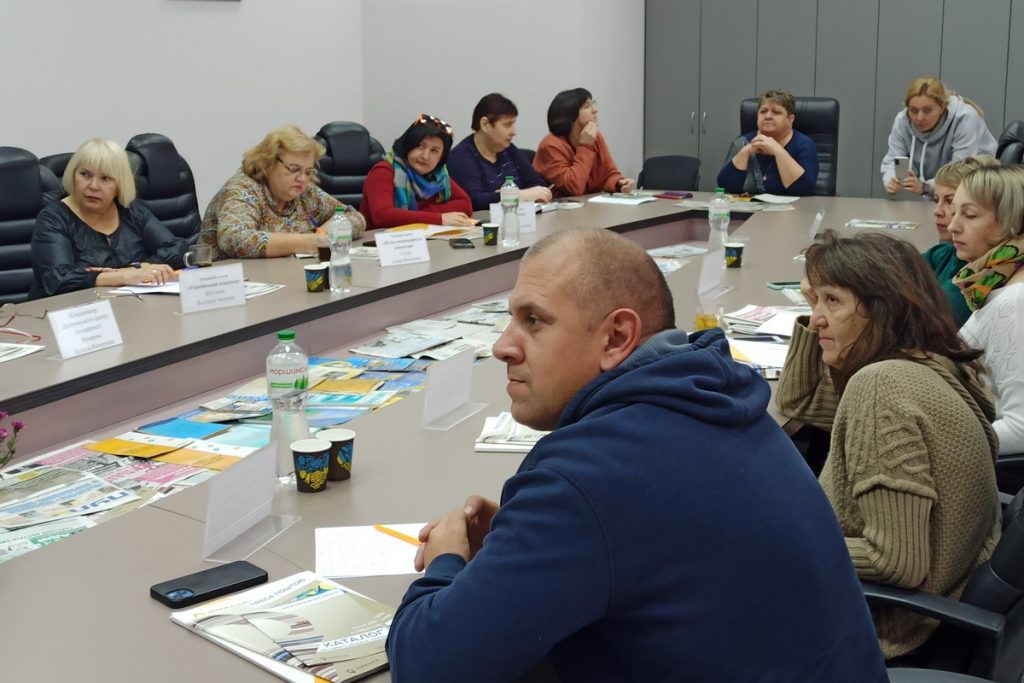
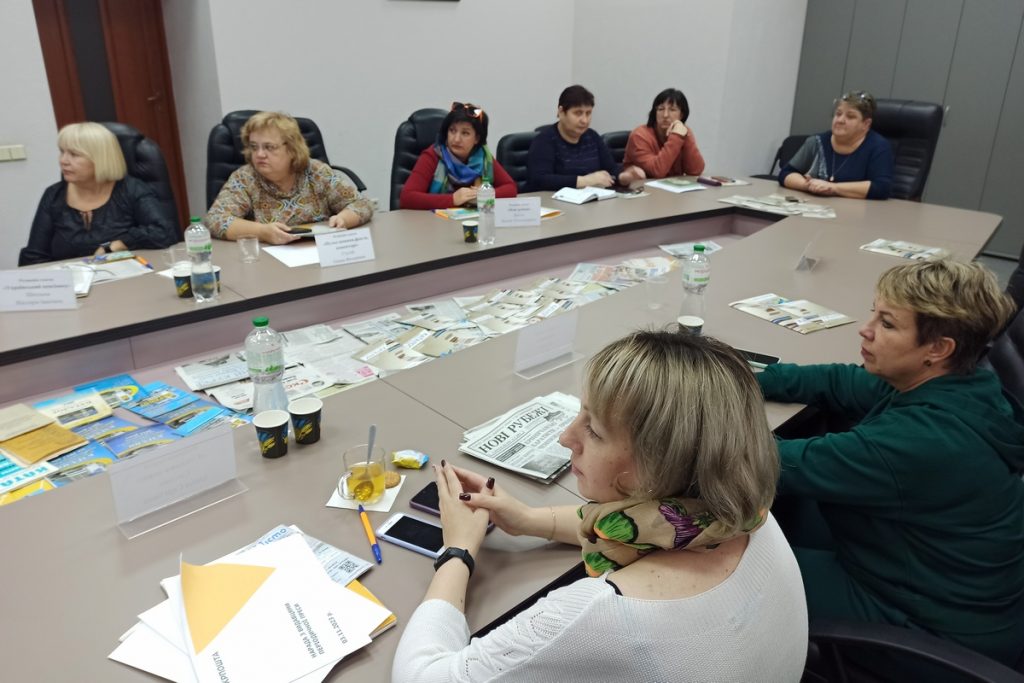

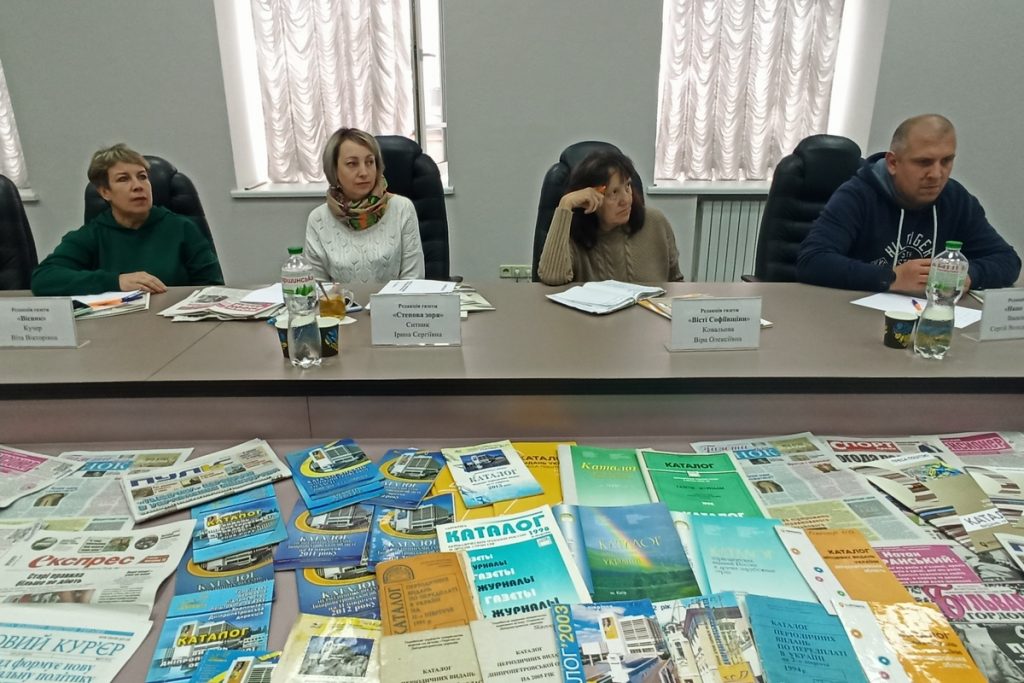
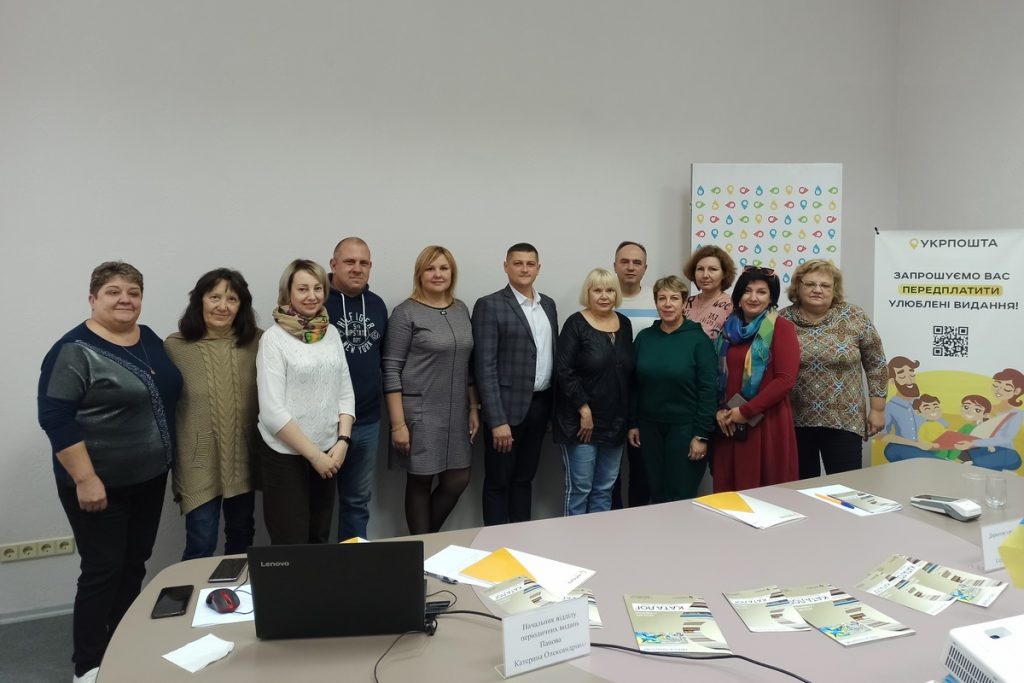
Information Service of Dnipro regional organization of NUJU

 THE NATIONAL UNION OF
JOURNALISTS OF UKRAINE
THE NATIONAL UNION OF
JOURNALISTS OF UKRAINE
















Discussion about this post